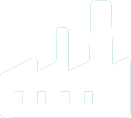Indifference or urgent necessity?
If someone had told me 15 months ago that a newly founded professional league would ask me if I could provide them with my expertise in creating a hygiene concept, I would have declared them crazy. But it actually happened…
That`s how it started: In March 2020, Corona hits us all like a hurricane. Highly contagious! No one has any experience with this kind of virus. The Robert Koch-Institute tried to lay down some rules. Mouth/nose protection, keeping distance as well as hand disinfection. We completely closed our full inpatient care facility. The staff tried everything to keep the virus out. Many forms had to be filled out, many concepts and information letters had to be written to relatives and all incidents had to be documented. All manually, of course. No help seemed to be in sight.
It all started with a request from a good friend of mine; “There is a digital admission control system. Do you want to test the system?” – of course we wanted to test the system! The entire entry process, which previously had to be done manually by staff with a lot of time spent, could now be done by a system with biometric facial recognition that checks whether a mask is being worn, temperature measurement and hand disinfection. All in one device. And best of all: documentation (name, date, time of arrival, visited resident) for the health authority. All data is stored in a specially secured cloud in accordance with European data protection guidelines. A workload reduction of at least 10 minutes for each visit.
Our first real step towards digitalisation. More should follow.
Why am I reporting this? Because nursing in Germany is very afraid of digitalisation and the possible investments. It’s like an indifference: static, fearful, hostile to innovation. ´No change, please!’ or ‘Everything was better in the past’ – a saying behind which an entire industry hides, especially in Germany. Yet change is more important today than ever before. Especially in geriatric care.
The so-called demographic change can no longer be stopped. We can no longer reverse the age pyramid, which is turning into a funnel. The ageing of the population is progressing steadily. There is no patent remedy to stop this process. The next problem is the increasing age of people due to better medical care.
Only the human body is not designed to live 90 or 100 years. Conversely, this means that more and more people will need care in the coming decades. And that too with a very large shortage of nursing specialists and assistants. In addition, there are legal regulations that do not improve the situation. The demands on the quality of care and the nursing staff are constantly increasing. And everything a nurse does must be documented. Most companies in our sector still do this manually.
This is exactly where digitalisation must come in. Standardised processes belong in the data cloud and not on a piece of paper.
Digitalisation is a huge opportunity for employers to present themselves as innovative to potential employees. To offer them a state-of-the-art workplace with an extremely high level of security for the future. Unfortunately, many employers have not yet recognised this or do not want to recognise it. Young people want a perspective for the future. They want clear structures, a vision, teamwork and the feeling that their work and commitment are valued. They want to work in a company that has a common vision for all employees. To have a vision for my company, I have to engage with the future. When I engage with the future, I have to engage with new technological advancements, with change and with ever-changing challenges. I cannot do that alone as an entrepreneur. For that, I need responsible and creative employees and constant dialogue.
I have to allow this whole process. As entrepreneurs, we have to learn again to develop the company together with our employees. We also have to allow emotions again. After all, our “vocation” is highly emotional. There is no profession that triggers so much direct gratitude from our residents/patients, which every employee receives immediately. We work directly on and with people. We must never forget that. Health as the highest good.
In order for the employee to be able to use all their energy and care time to the maximum with the patient, all processes around the activity must be digitalised. After all, our profession is ‘the licence to flirt’. However, I can only live it up with my residents if there is enough time available for it. The time must not be wasted with unnecessary documentation.
New technologies must be used here. There are documentation systems that map all standardised processes. The staff member has all the information about the patient on a tablet. Data access is exclusively via the cloud system. Available everywhere in the hospital. Every change is immediately recorded and is available to all other staff members within seconds. In the past, this was probably done by pneumatic post. This way, no important information is lost. And the benefit is important time that can be spent together with the patient. Because our patients need a lot of attention. After all, they did not come to us voluntarily. In reality, everyone prefers to stay in their traditional social environment.
But the biggest challenge at the end will be hygiene. COVID-19 will not be the last virus of its kind. Mankind and companies will have to face completely different challenges in the future. The challenges will have one thing in common. Control only through innovative and basic hygiene. Basic hygiene is things like brushing teeth, hand hygiene and surface disinfection. Innovative hygiene starts with air purification in our living spaces, continues with ventilation behaviour and ends with disinfection and virus destruction of our indoor air. The technical solutions and corresponding devices/products already exist. Most of them are still undergoing testing in order to be able to prove the sustainability, effectiveness and reliability of the devices/products through certificates.
To conclude, I would like to outline a few individual technical possibilities that we are using in our care facility in Hamburg.
We are currently using – Access system with biometric face recognition, measurement of body temperature, hand disinfection, appointment allocation and control, documentation and automatic door opening;
- Contactless hand disinfection dispensers with digital level indicator;
- CO2-lights for measuring room air quality; when the room air reaches a certain CO2 value, the lights turn yellow or, when the limit value is reached, it turns red. At the latest, the room must be ventilated;
- Use of room air filters that kill germs and viruses with the help of UV-C light;
- Digital analysis of residents’ risk of falling down; and
- Digital game world for people in need of care.
The following technical innovations are planned for the next 18 months:
- Renewal of our area-wide WLAN network;
- Practical test of room air filters with UV-C light and room air disinfection;
- Extension of the access control system with the function of vaccination control by integrating the function of ‘Luca App’;
- Renewal of the patient documentation system incl. tablets; and Digital surface disinfection incl. documentation.
All information from the systems is summarised on a large screen and can be called up in the duty room. This makes it possible for every staff member to react immediately.
This all sounds a bit like science fiction, but it is reality. These systems already exist. They have been developed and tested.
We have to set new European hygiene standards in kindergartens, schools and care facilities. Because only if we work together on solutions will we be able to help ourselves and our fellows to be protected from the rapid-spreading nature of diseases. This requires a high degree of discipline from all people.
I am a hygiene consultant of the European League of Football (ELF). And what we can learn of these athletes is: professional and successful work is not possible without a high level of discipline. We learn that from the league and the league learns hygiene standards from us. This is the way to get ahead!
Andrè Godo
Hamburg Senator,
European Senate of Economy and Technology























